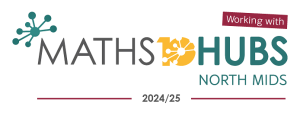Mathematics
We aim to develop curious, enquiring minds and encourage our pupils to become self-motivated, confident, independent and capable learners so they can solve problems and acquire a secure, long-term and adaptable understanding of maths. Mathematics is relevant to their world and provides vital knowledge and skills for every-day life, both within school and beyond.
Our teachers create engaging mathematics for all learners and encourage creativity, reasoning and problem solving. We want to help children develop an appreciation of, and enjoyment in maths through rich and challenging activities. In addition, we help them appreciate how it relates to learning in other subjects, across the curriculum and in the wider world. We promote that we are all mathematicians and we foster positivity and a ‘can do’ attitude towards mathematics.
In line with The National Curriculum, we aim to develop:
- Positive and determined learners who tackle mathematical challenges positively
- Confident learners who recall, use and apply mathematical knowledge, concepts and skills fluently in a variety of contexts
- Reasoning, problem solving and logical thinking, including enquiry and investigation
- Problem solvers who break problems down into a series of logical steps
- Children who work systematically and accurately
- Both independent and collaborative work to enhance learning
- Confident communicators who ask and answer questions, share ideas, learn from mistakes and explain their reasoning using mathematical language
- Pupils who can apply mathematics across the curriculum and in real life
At St. Margaret’s, we use a Mastery style approach to teaching and learning, adapted for our setting and learners, using the ‘5 Big Ideas’:
- coherence
- structures & representation
- mathematical thinking
- fluency
- variation
Teaching for mastery assumes everyone can learn and enjoy mathematics. Mastering maths means pupils of all ages acquire a deep, long-term, secure and adaptable understanding of the subject and engage fully as learners who reason and seek to make connections.

Please find our curriculum documents below:
